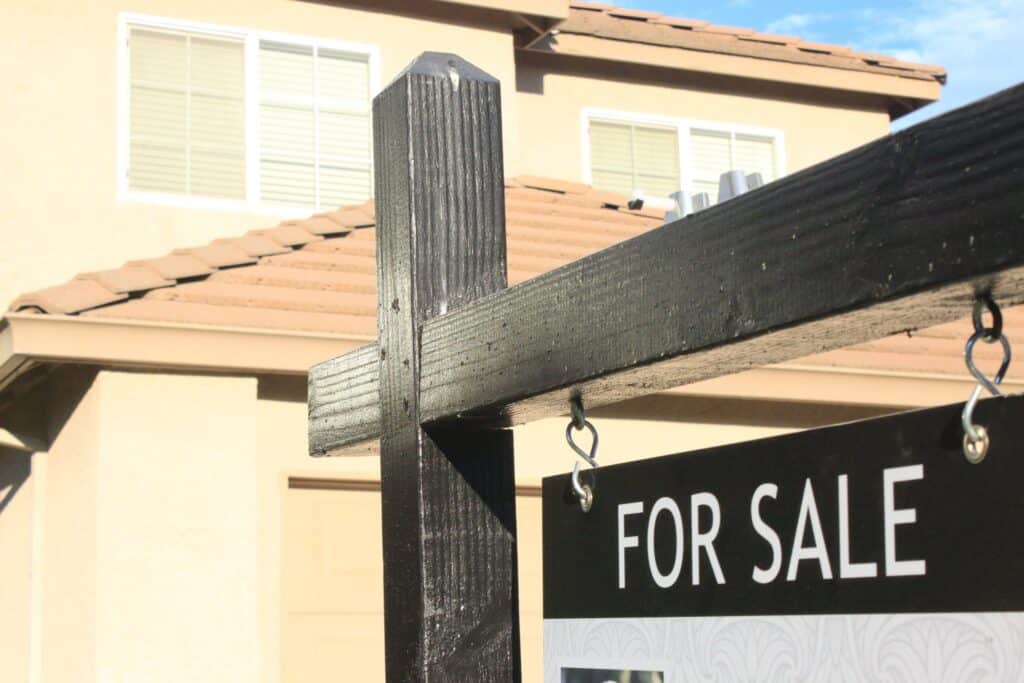The real estate industry has long relied on the Multiple Listing Service (MLS) as the primary platform where brokers share property listings to facilitate sales and rentals. Traditionally, MLS platforms have been centralized systems, controlled by local real estate boards or associations. This centralization has provided efficiency but also introduced challenges related to data access, transparency, and control.
With the rise of Web3 technologies — blockchain, decentralized applications (dApps), smart contracts, and tokenization — there is a growing interest in how the MLS could evolve into a decentralized system. Decentralizing the MLS promises to reshape the real estate landscape, making data more accessible, secure, and transparent while reducing the power held by a few centralized entities.
This article explores the concept of decentralizing the MLS within the framework of Web3, the benefits and challenges it poses, the technology involved, and its potential impact on buyers, sellers, agents, and the broader real estate market.
What is MLS and Why is it Centralized?
The Multiple Listing Service is a database used by real estate professionals to share property listings. It enables brokers to cooperate by allowing them to access each other’s listings, making it easier to buy and sell homes.
Historically, MLS systems are controlled by regional or local real estate boards or associations. These organizations set the rules, manage data access, and enforce policies. While MLS centralization has many advantages, such as ensuring data accuracy and providing a unified platform, it also leads to some drawbacks:
- Limited Access: Access to MLS data is typically restricted to licensed agents or members of certain boards.
- Data Silos: Centralized systems create isolated pools of data, which can make it hard to aggregate or share information across regions.
- Lack of Transparency: Buyers, sellers, and even some agents have limited visibility into the listing process, commission structures, or listing histories.
- High Fees and Gatekeeping: MLSs sometimes charge substantial fees and control what information can be distributed publicly.
What is Web3 and How Does It Relate to Real Estate?

Web3 is the vision of a decentralized internet built on blockchain technology. Unlike Web2, where large companies control data and services, Web3 aims to put data ownership back in the hands of users through decentralization, transparency, and peer-to-peer interactions.
Key features of Web3 include:
- Blockchain: A decentralized, immutable ledger that records transactions transparently.
- Smart Contracts: Self-executing contracts that run on blockchains, automating agreements without intermediaries.
- Decentralized Applications (dApps): Applications that run on decentralized networks rather than centralized servers.
- Tokenization: Representing real-world assets digitally as tokens on a blockchain.
In real estate, Web3 technologies can transform traditional processes by enabling peer-to-peer property transactions, transparent title records, fractional ownership, and decentralized data sharing.
The Idea of Decentralizing MLS in a Web3 World
Decentralizing the MLS means moving away from a single controlling entity toward a distributed system where data and control are shared across multiple participants. In a Web3-powered MLS, property listings, transaction histories, and ownership records could live on a blockchain or distributed ledger.
Instead of relying on a few organizations to manage and maintain the MLS, the platform would be governed collectively by its users — agents, brokers, buyers, and sellers — through decentralized governance models. Listings could be uploaded, updated, and accessed transparently and securely by anyone on the network.
Potential Benefits of a Decentralized MLS
1. Increased Transparency
Because blockchain data is public and immutable, a decentralized MLS could provide a transparent history of every property listing, price change, sale, and rental. Buyers and sellers would have greater confidence knowing that information cannot be altered or hidden.
2. Greater Data Access and Sharing
Decentralization breaks down data silos. Instead of having multiple MLS systems isolated by region, a decentralized MLS could unify listings globally or nationally. This would help agents and buyers find more options and better market insights.
3. Lower Costs and Fees
By cutting out intermediaries and central gatekeepers, a decentralized MLS can reduce the costs of data access, membership fees, and listing charges. Smart contracts could automate many processes, reducing administrative overhead.
4. Enhanced Data Security
Blockchain’s cryptographic security protects data from tampering or unauthorized access. Property data and transaction records would be safer from hacking or fraud.
5. Empowering Users and Agents
Web3’s decentralized governance models mean that agents, buyers, and sellers could have a say in how the MLS operates, voting on rules or updates. This could democratize control over real estate data and services.
6. Innovation in Transactions and Ownership
Tokenization and smart contracts enable new business models like fractional ownership, instant escrow, and programmable royalties. Real estate could become more liquid and accessible to smaller investors.
How Would a Decentralized MLS Work Technically?
A decentralized MLS system would involve several Web3 technologies working together:
- Distributed Ledger: Property listings and transaction records would be stored on a blockchain or distributed ledger. This could be a public blockchain like Ethereum or a permissioned blockchain tailored for real estate.
- Smart Contracts: These would automate the listing process, updates, offers, contracts, and escrow. For example, a smart contract could automatically release funds once conditions for a sale are met.
- Decentralized Storage: Large files like photos, floor plans, and documents could be stored on decentralized storage networks (e.g., IPFS) linked to blockchain records.
- Digital Identities: Verified digital identities for agents and buyers would enable secure, trustworthy interactions without relying on centralized authorities.
- Decentralized Governance: Stakeholders could participate in decision-making through token-weighted voting or other governance frameworks.
Challenges and Considerations
While the vision of a decentralized MLS is promising, several challenges remain:
1. Regulatory Compliance
Real estate is heavily regulated. MLS systems must comply with local laws regarding data privacy, fair housing, anti-money laundering, and consumer protection. Implementing these regulations on a decentralized network is complex.
2. Data Standardization
MLS data comes in various formats and standards. Creating a unified decentralized system requires agreement on data standards so that listings are consistent and searchable.
3. Adoption by Industry Stakeholders
Real estate boards, brokers, and agents are used to current MLS structures. Transitioning to a decentralized model requires education, incentives, and trust-building.
4. Privacy Concerns
Blockchain data is transparent and immutable, which can conflict with privacy requirements for personal or sensitive information in real estate transactions.
5. Technical Scalability
Blockchain networks currently face scalability and speed limitations. Handling large volumes of listings and real-time updates requires efficient infrastructure.
6. Interoperability
Integrating decentralized MLS systems with existing tools and platforms used by agents and buyers will be necessary for smooth adoption.
Real-World Examples and Early Projects
Several startups and initiatives are exploring Web3 applications in real estate, including decentralized listing platforms and tokenized property marketplaces.
- Some platforms use blockchain to record title deeds, reducing fraud and simplifying transfers.
- Others create marketplaces where properties can be bought fractionally as tokens.
- A few pilot decentralized listing services allow peer-to-peer listing and discovery without central MLS control.
These early efforts highlight the potential of Web3 but also illustrate the need for collaboration with regulators and industry players.
What Does This Mean for Buyers, Sellers, and Agents?
For Buyers
A decentralized MLS could offer buyers more transparency and access to listings without relying on agents or brokers as gatekeepers. They could track a property’s full history on the blockchain and negotiate directly with sellers if desired.
For Sellers
Sellers might benefit from wider exposure, lower listing fees, and more control over their data. Smart contracts could speed up sales and reduce paperwork.
For Agents and Brokers
Agents may need to adapt by offering value-added services beyond listing access, such as advisory, marketing, and transaction facilitation. Decentralized MLS could empower agents by giving them more control over listings and commissions, but it could also disrupt traditional business models.
The Future of MLS in a Web3 World
The decentralization of MLS is not just a technological shift but a transformation of how real estate markets operate. It aligns with broader trends in Web3, where users seek control over their data, more equitable governance, and innovative financial tools.
While full decentralization of MLS may take years due to regulatory, technical, and cultural hurdles, incremental steps toward decentralization are already underway. Hybrid models that combine centralized oversight with blockchain-powered transparency and automation could pave the way.
Ultimately, the decentralization of MLS could democratize real estate markets, improve transparency, lower costs, and unlock new investment opportunities for everyone involved.
Conclusion
The concept of decentralizing the MLS in a Web3 world offers a promising vision for the future of real estate. By leveraging blockchain, smart contracts, and decentralized governance, the real estate industry can address many limitations of today’s centralized MLS systems.
Increased transparency, data accessibility, security, and user empowerment are just some of the benefits that a decentralized MLS could bring. However, challenges like regulatory compliance, privacy, scalability, and industry adoption must be carefully navigated.
As Web3 technologies continue to mature, the real estate sector stands on the cusp of significant transformation. The MLS of the future may no longer be controlled by a single entity but instead operate as a transparent, secure, and democratized platform — truly reflecting the decentralized ethos of Web3.













